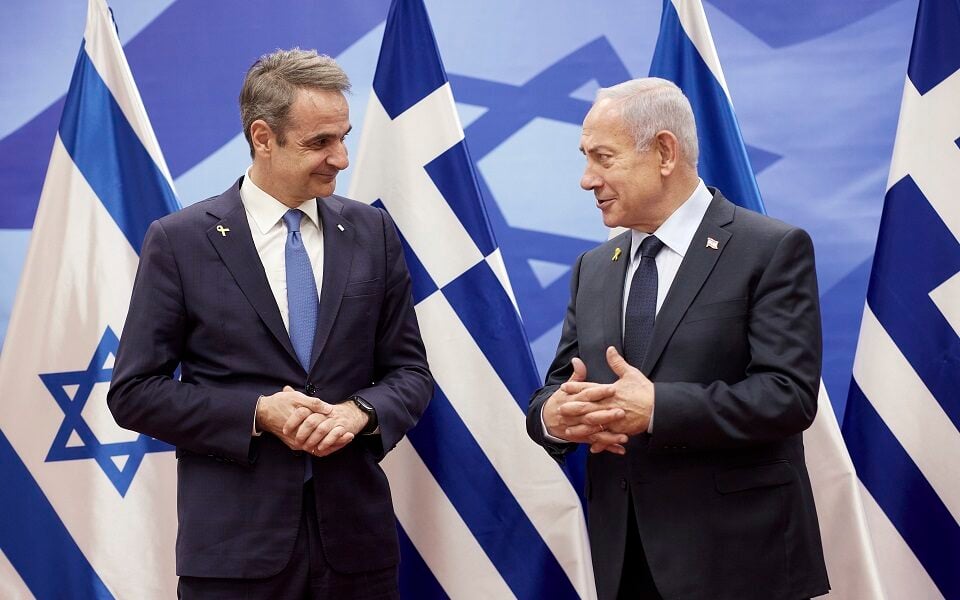
[Dimitris Papamitsos/Office of the Greek Prime Minister/via InTime News]
“May Allah destroy Zionist Israel,” declared Turkish President Recep Tayyip Erdogan, while Greek Prime Minister Kyriakos Mitsotakis was in “Zionist Israel.” Erdogan had not addressed Israel for quite some time, and his statement seemed to indirectly target Greece as well, given its steady efforts to strengthen ties with Israel. His frustration is understandable, as he is well aware that US President Donald Trump views Israel’s security as one of the top priorities of American foreign policy. Consequently, Erdogan sees Greece’s close cooperation with Israel as extending to its relationship with the United States – two countries with which Turkey has ongoing disputes in the Aegean and Syria.
At the same time, it is evident that Greece does not hold the same geopolitical weight as Israel, making their relationship inherently asymmetrical. Bridging this gap will take time, but ultimately, the issue is political and comes down to how Athens envisions the triangular relationship between Greece, Israel and Turkey. How far is Greece’s political leadership willing to take its partnership with Israel? What are the ultimate limits of this cooperation? More specifically, if this alliance demands it, would Greece be willing to revoke the “Athens Declaration,” the cornerstone of its new approach to Greek-Turkish relations?
In the end, all alliances are tested in practice. The key is to establish clear objectives and well-defined boundaries to prevent inconsistencies, misunderstandings and setbacks. Does Greece truly know what it wants from Israel? If its actions are reactive and fragmented – lacking a strategic framework that accounts for both Greek-Turkish and Israeli-Turkish relations – it risks being doubly exposed when faced with real challenges. Temporary alignments of interest can lead to dead ends, as shifting circumstances inevitably reshape priorities. Strategic partnerships require more than shared interests; they demand political will. After all, when seeking support, one must also be prepared to offer it in return. Reciprocity is fundamental to credibility in such matters.
Perhaps this is an opportunity to shift Greek-Turkish disputes beyond the narrow confines of the Aegean – where Greece has little to gain – and into the broader Eastern Mediterranean, a region where other key players, including two of the most powerful, Egypt and Israel, are aligned with Greek interests.
Israel stands beside us. But do we truly know how close we stand to Israel?